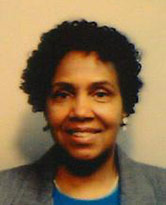From Serving to Service
What path did you take to become a counselor?
As I look back now, my earlier life journey, which took me into the military, was a direct result of biblical hermeneutics long before attending seminary. Discovering myself as a marriage and family therapist came about as I transitioned from 23 years of active service. I heard myself give the teenage answer to the question, “What are you going to do now?” My reply: “I don’t know.”
How have you used your past in your work as a counselor?
 Now with master of divinity and doctor of ministry degrees, I figure this time around my zeal is tempered with wisdom. I asked God where I fit in the civilian world and how I could give back to America some tangible expression of appreciation for the opportunity to serve in three branches of the Armed Forces.
Now with master of divinity and doctor of ministry degrees, I figure this time around my zeal is tempered with wisdom. I asked God where I fit in the civilian world and how I could give back to America some tangible expression of appreciation for the opportunity to serve in three branches of the Armed Forces.
This time, the character of God and life observations confirmed my new place of service. In the military, we are always a part of a unit, team, company, etc. My mind paralleled to the concept of a marriage and family therapist, who serves the whole family, family team, etc. So I went back to school for a licensing degree and followed up with the licensing components required to practice, and here I am.
What do you enjoy most about counseling?
I am absolutely enriched, thankful and in awe to observe and participate in the integration of spirituality and psychotherapy in counseling sessions. CareNet provided a nurturing, eye-opening learning incubator for post-graduate associate mental health clinicians to absorb and grow in a comprehensive residency didactic. This environment slowed me down enough to become comfortable with myself and throttle down my performance-based edge. The results have equipped me to hear, be authentically present and become exhilarated about possibilities.
Denise Merritt, DMin, LMFTA, works for CareNet’s Sandhills regional center out of the Fayetteville Haymount office. She can be reached at [email protected].

